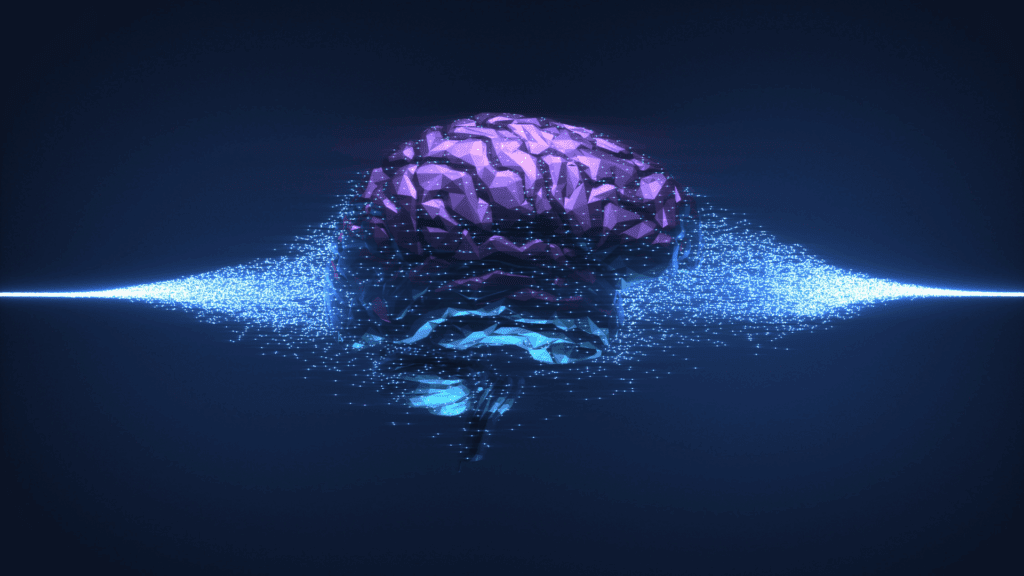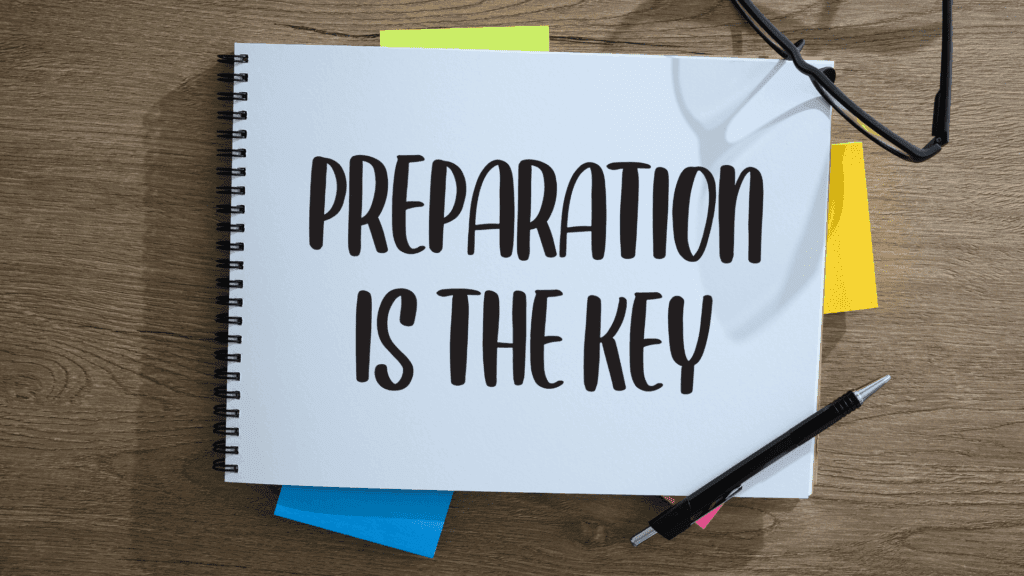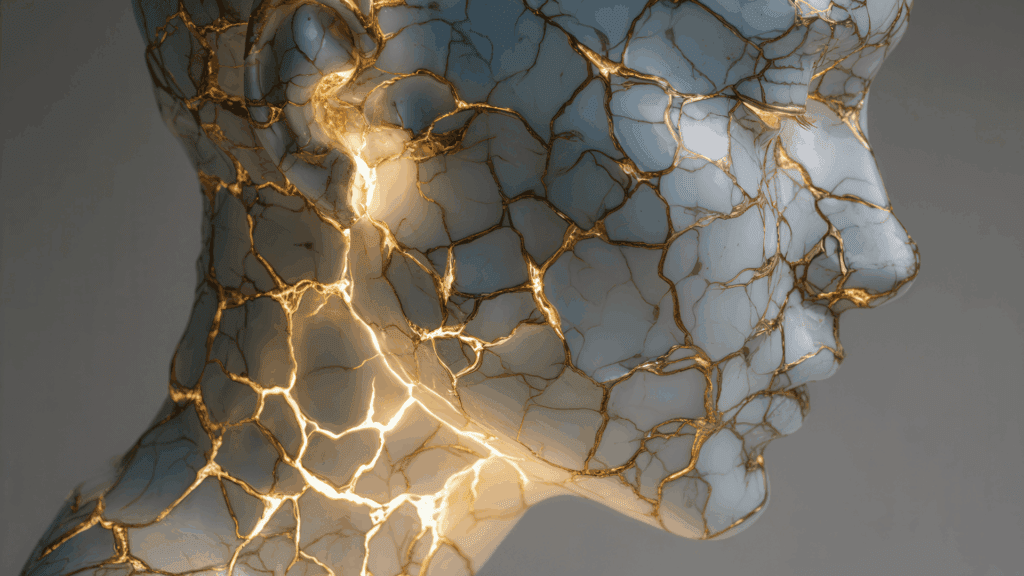Walking Through the Proverbial Door: First Brain-Based Coaching Session
Walking into your first brain-based coaching session can feel both exciting and nerve-wracking. You’ve made the decision to invest in yourself, and now you’re wondering what actually happens when neuroscience meets personal transformation. Unlike traditional therapy sessions that often focus on past traumas and psychological diagnoses, your first brain-based coaching session launches you into a future-focused journey grounded in cutting-edge brain science.
At MindLAB Neuroscience, we’ve designed our approach to leverage the brain’s natural capacity for change through neuroplasticity. This means that during your first brain-based coaching session, you’re not just talking about your challenges—you’re beginning to rewire the neural pathways that have kept you stuck. The process is both scientifically rigorous and deeply personal, combining evidence-based techniques with individualized strategies tailored to your unique brain patterns and goals.
Many clients arrive at their first coaching session after years of traditional approaches that provided insight but failed to create lasting change. The difference lies in understanding that sustainable transformation happens at the neurological level, not just the cognitive one. Your brain is capable of remarkable adaptation at any age, and this initial session sets the foundation for harnessing that potential.

How Brain-Based Coaching Differs From Traditional Therapy
One of the most common questions before a first brain-based coaching session is: “How is this different from therapy?” The distinction is fundamental and shapes everything about your experience. Traditional therapy typically explores the “why” behind your challenges, diving into past experiences, childhood patterns, and emotional wounds that require processing and healing. While valuable for addressing mental health conditions like depression, anxiety, or trauma, therapy often keeps clients looking backward.
Brain-based coaching, by contrast, focuses on the “how”—how to create new neural pathways, how to optimize brain function, and how to build habits that support your goals. During your first brain-based coaching session, the emphasis is on present challenges and future possibilities rather than past problems. The coach acts as a neuroscience-informed guide who helps you understand the biological mechanisms driving your behaviors and thoughts.
Another critical difference emerges in the timeline and measurability of results. Traditional therapy can take years to produce noticeable change, whereas brain-based coaching is designed for rapid transformation, often within 90 days. This accelerated timeline is possible because the coaching methodology targets specific neural circuits and leverages neuroplasticity principles that encourage the brain to form new connections quickly. Your first brain-based coaching session initiates this process by identifying the exact neural patterns that need attention and establishing baseline metrics for tracking progress.
The relationship dynamic also differs significantly. Therapists diagnose and treat mental health disorders, while brain-based coaches partner with clients who are fundamentally healthy but seeking optimization. During your first brain-based coaching session, you’re not a patient receiving treatment—you’re a collaborator in a scientific experiment where your brain is both the subject and the beneficiary.

Setting Yourself Up for Success
Preparation significantly impacts the quality of your first brain-based coaching session. While you don’t need to be a neuroscience expert, arriving with clarity about your intentions and current challenges helps maximize the value of your time. Before your appointment, take time to reflect on what brought you to seek coaching at this particular moment. What patterns feel stuck? What goals have remained elusive despite your best efforts? What would meaningful change look like in your professional and personal life?
Practical preparation matters too. Ensure you have a private, quiet space free from distractions where you can speak openly during your first brain-based coaching session. If your session is virtual, test your technology in advance to avoid technical disruptions that can fragment your focus. Schedule buffer time before and after the session—arriving rushed or immediately jumping into another meeting prevents your brain from fully engaging in the coaching process.
Consider completing any intake forms or assessments your coach provides before your first brain-based coaching session. These tools aren’t just administrative paperwork; they serve as metacognitive exercises that prompt self-reflection and begin the coaching process before you even meet. Questions about your values, strengths, challenges, and aspirations activate the prefrontal cortex—the brain region responsible for self-awareness and future planning.
Many clients find it helpful to bring specific examples of situations where they feel their brain isn’t serving them optimally. Perhaps you struggle with focus during important tasks, find yourself caught in anxiety loops, or notice that motivation evaporates halfway through projects. These concrete scenarios provide material for your coach to work with during your first brain-based coaching session, allowing for real-time application of neuroscience principles rather than abstract discussion.
The Session Structure and Flow
Your first brain-based coaching session typically lasts 60 to 90 minutes and follows a structured yet flexible framework designed to align with how your brain naturally processes information. The session begins with rapport-building and trust establishment, which isn’t just social niceties—it’s neuroscience in action. When you feel psychologically safe with your coach, your amygdala (the brain’s threat detection center) quiets down, allowing your prefrontal cortex to engage fully in higher-order thinking, decision-making, and creative problem-solving.
During the initial phase of your first brain-based coaching session, your coach will explore your background, current situation, and what specifically prompted you to seek neuroscience-based coaching now. This isn’t idle conversation—the coach is listening for patterns in your language, identifying limiting beliefs, and beginning to map the neural circuits that may be keeping you stuck. You’ll discuss your goals with particular attention to what achieving them will mean at a neurological level: how your daily experience will shift, what new capabilities you’ll develop, and how your brain’s reward systems will respond to these changes.
A distinctive feature of your first brain-based coaching session is the neuroscience education component. Your coach will explain relevant brain mechanisms that directly relate to your challenges. For example, if you struggle with procrastination, you’ll learn about dopamine’s role in motivation and how your brain’s reward prediction system may be working against you. If anxiety is your challenge, you’ll understand the amygdala’s hair-trigger response and how to engage your prefrontal cortex to regulate emotional reactivity. This knowledge isn’t academic—it empowers you to work with your brain rather than fighting against it.
The session progresses into goal-setting using whole-brain techniques that go beyond traditional SMART goals. Brain-based goal-setting engages both the logical left hemisphere and the emotional right hemisphere, creating goals that inspire action rather than feeling like obligations. Your coach will help you articulate not just what you want to achieve, but how you’ll feel when you achieve it, what it will look like in concrete detail, and what obstacles your brain might create along the way.
As your first brain-based coaching session moves toward conclusion, you’ll work with your coach to design initial brain-based practices tailored to your specific needs. These might include visualization exercises to prime neural pathways, habit-stacking strategies to leverage existing neural circuits, or mindfulness techniques to strengthen executive function. The emphasis is always on small, consistent actions that create neuroplastic change rather than overwhelming commitments that your brain will resist.

The Science Behind the Transformation
Understanding the neuroscience principles at work during your first brain-based coaching session demystifies the process and increases your confidence in the approach. The foundational concept is neuroplasticity—the brain’s ability to reorganize itself by forming new neural connections throughout life. This means that patterns that feel deeply ingrained, whether thought patterns, emotional reactions, or behavioral habits, can actually be changed through intentional practice.
During your first brain-based coaching session, you’ll learn how the habit loop operates in your brain: cue, routine, and reward. This understanding allows you to identify existing loops that aren’t serving you and consciously design new ones that support your goals. The key is that your brain craves efficiency and will always default to established neural pathways unless you deliberately create alternatives and reinforce them through repetition.
Another critical principle explored in your first brain-based coaching session is the brain’s threat-reward response, often described through the SCARF model: Status, Certainty, Autonomy, Relatedness, and Fairness. Your brain constantly scans for threats to these five domains, and when it perceives danger, it shifts into protective mode—which feels like resistance, procrastination, or avoidance. Understanding this mechanism helps you recognize when your brain is trying to protect you and develop strategies to reassure it while still moving forward.
The role of neurotransmitters, particularly dopamine and serotonin, is typically introduced during your first brain-based coaching session. Dopamine drives motivation and reward-based learning, so your coach will help you structure goals and actions to provide regular dopamine boosts that maintain momentum. Small wins become neurologically significant because they trigger dopamine release, which reinforces the behavior and makes you more likely to continue. This is why brain-based coaching emphasizes incremental progress over massive leaps—your brain responds better to consistent small victories.
Mapping Your Neurological Starting Point
A significant portion of your first brain-based coaching session involves assessment, though this looks different from clinical psychological testing. Brain-based assessments focus on understanding your current neural patterns, cognitive strengths and challenges, stress responses, and how your brain processes information and emotions. Your coach may use tools like the Wheel of Life to visually represent satisfaction across various life domains, kinesiological testing to tap into subconscious patterns, or specific questionnaires designed to reveal cognitive biases and thought patterns.
These assessments serve multiple purposes during your first brain-based coaching session. First, they create baseline data that allows you to measure progress objectively as your brain changes. Second, they activate metacognition—thinking about your thinking—which engages the prefrontal cortex and begins the transformation process immediately. Third, they provide your coach with information about your unique brain patterns, learning style, and optimal approaches for creating change.
Goal clarification during your first brain-based coaching session goes deeper than surface-level objectives. While you might initially say you want a promotion or better relationships, brain-based coaching explores the neurological reality beneath those goals. What neural capabilities need to develop? What limiting beliefs are currently constraining your brain’s perception of what’s possible? What environmental and internal cues are triggering old patterns that conflict with your stated goals?
Your coach will help you identify where you are now, where you want to be, and—critically—what neural shifts need to occur to bridge that gap. This creates a roadmap for your coaching journey that’s grounded in neuroscience rather than wishful thinking. By the end of your first brain-based coaching session, you’ll have clarity not just about your goals, but about the specific brain-based strategies you’ll use to achieve them.

What to Actually Expect Feeling-Wise
Many clients report feeling a mixture of excitement and vulnerability during their first brain-based coaching session. Discussing your challenges and goals with a relative stranger requires courage, and it’s completely normal to feel some nervousness. Brain-based coaches are trained to create psychological safety quickly, recognizing that your brain won’t engage in meaningful work if it perceives threat.
You may experience “aha moments” during your first brain-based coaching session as neuroscience concepts suddenly explain patterns you’ve lived with for years without understanding. Learning that your procrastination isn’t a character flaw but a neurological response to perceived threat can be profoundly liberating. Understanding that your brain’s negativity bias evolved for survival, not happiness, reframes self-critical thoughts as biology rather than truth.
Some clients leave their first brain-based coaching session feeling energized and motivated, while others feel contemplative and need time to process. Both responses are normal and valuable. The coaching conversation activates multiple brain regions and may continue to generate insights in the hours and days following your session—this is your brain’s default mode network working in the background to integrate new information.
It’s also common to feel a sense of relief during your first brain-based coaching session. Finally, someone is speaking your language—addressing not just what you’re experiencing but why your brain is creating that experience and how to change it at the source. This scientific approach often resonates with professionals who’ve felt frustrated by more abstract or purely emotional approaches to personal development.
Building Momentum for Lasting Change
Your first brain-based coaching session is just the beginning of your neuroplastic journey. Before concluding the session, your coach will establish clear next steps and accountability structures. This typically includes specific brain-based practices to implement before your next session, designed to begin creating the neural changes you’re seeking. These practices are small and manageable because your brain resists dramatic change but responds well to incremental shifts.
The typical brain-based coaching engagement involves eight to twelve sessions over three to six months, with sessions spaced to allow time for neural consolidation between meetings. This pacing aligns with how neuroplasticity works—change requires consistent practice over time, not intensive cramming. After your first brain-based coaching session, you’ll likely meet weekly or bi-weekly, with the frequency adjusted based on your needs and progress.
Between your first brain-based coaching session and your second, your real work begins. The practices your coach assigns aren’t homework in the academic sense—they’re neural experiments. You’re testing what happens when you consciously engage different brain circuits, interrupt old patterns, and rehearse new ones. Many clients report that significant transformation happens between sessions as their brain processes the coaching conversation and integrates new patterns.
Your coach will provide methods for tracking your progress, which serves multiple purposes. Objective metrics help you see changes that might otherwise be invisible, and the act of tracking itself reinforces new neural pathways by directing attention and creating accountability. This could include journaling about your experiences, rating your performance on specific metrics, or noting situations where you successfully applied brain-based strategies learned in your first brain-based coaching session.

The Science of Sustainable Change
The reason your first brain-based coaching session can launch such rapid transformation relates to how efficiently this approach works with your brain’s natural functioning. Traditional approaches often inadvertently work against neural mechanisms, creating internal resistance that slows progress. Brain-based coaching, by contrast, leverages neuroplasticity, the reward system, and cognitive reframing in ways that feel natural rather than forced.
Research shows that brain-based coaching produces measurable neurological changes. The prefrontal cortex, responsible for executive function and self-regulation, shows increased activation and connectivity after coaching interventions. The amygdala, which triggers stress and anxiety responses, demonstrates reduced reactivity. These aren’t just subjective improvements in how you feel—they’re objective changes in how your brain functions.
The 90-day breakthrough model commonly used in brain-based coaching aligns with the timeframe required for neuroplastic change to consolidate. During and after your first brain-based coaching session, you’re beginning a process where new neural pathways are formed through repetition and reinforcement. Within three months of consistent practice, these new pathways can become the default routes your brain takes, meaning the changes become automatic rather than requiring constant conscious effort.
Brain-based coaching also creates lasting change because it addresses root causes rather than surface symptoms. If anxiety is your challenge, traditional approaches might teach coping strategies for managing anxiety symptoms. Your first brain-based coaching session, however, begins the work of understanding why your amygdala is hyperactive and how to strengthen prefrontal cortex regulation so anxiety doesn’t arise in the first place. This upstream intervention creates more profound and sustainable transformation.
Maximizing Your Investment
To optimize your first brain-based coaching session, approach it with openness and curiosity rather than the expectation that your coach will provide all the answers. Brain-based coaching is collaborative—your coach brings neuroscience expertise, but you bring self-knowledge that no one else possesses. The magic happens in the intersection of these two forms of knowing.
Be honest during your first brain-based coaching session about what’s actually happening in your life, not what you think should be happening or what sounds good. Your brain responds to reality, not aspirations, so giving your coach accurate information about your current state enables more targeted intervention. Remember that your coach has heard it all before and creates a judgment-free space specifically so you can be authentic.
Ask questions during your first brain-based coaching session. If a neuroscience concept isn’t clear, request clarification. If a practice seems impractical for your life, say so. The coaching relationship works best when there’s transparent communication and mutual understanding. Your coach can adjust approaches and explanations to better fit your learning style and circumstances, but only if you voice your needs.
Finally, trust the process even when it feels unfamiliar. Your first brain-based coaching session introduces a different way of thinking about yourself and your challenges. Approaching your patterns from a neurological perspective rather than a moral or psychological one can feel strange initially, but this shift in perspective is often where the breakthrough begins. Your brain is capable of remarkable change, and your first brain-based coaching session at MindLAB Neuroscience is the first step in unlocking that potential.
Ready to Experience Your First Brain-Based Coaching Session?
At MindLAB Neuroscience, we combine cutting-edge neuroscience with personalized coaching to create rapid, sustainable transformation. Your first brain-based coaching session is an investment in your brain’s potential and your future success. Contact us today to schedule your initial consultation and discover what becomes possible when science meets personal development.
#brainbasedcoaching #neurosciencecoaching #coachingsession #neuroplasticity #mindlabneuroscience #personaldevlopment #executivecoaching #brainhealth #cognitivetransformation #mentalperformance













